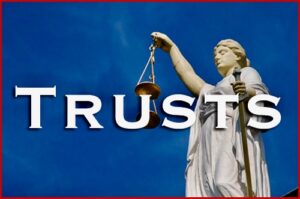
In my practice of acting for disinherited people, I frequently encounter adult children who have been raised by abusive, even toxic parents. It comes with the territory.
I have frequently told clients that it takes absolutely no skill to become a parent, but takes a combination of lots of skill, love, dedication, and some luck to become a good parent and raise a functional family.
Probably most parents are not evil, they simply are people with the wrong set of tools to adequately raise a loving family.
Ironically, I have seen many cases where a mommy dearest for example, disinherits her children and leaves her estate to charities involving care for children.
Many of the parents in fact will state that they have no idea what they’ve done wrong, that they did everything for their children, and that they in fact are the victims. These are typically the parents that states “ I did everything for you, I brought you into this world and could take you out of it so fast her head would spin.”
I find this hard to believe in that many of these parents do in fact know what they did wrong, they were there, and they were the ones who acted abusively to their children.
The fact is that abusers are manipulative and manipulate their victims and the people around them.
Children do not want to break off the relationships with their parents, no matter what their age, but sometimes for their own medical well-being, they must.
Signs of Abusive Parental Behavior
1. Favouring One Child Over Another
Needless to say, this can lead to unfavoured children growing up with the distorted, negative view of themselves, and the favored child, the exact opposite.
2. Teasing and Humiliation
this can be as simple as teasing your child that they are overweight, ugly and other harsh statements that can seriously damage a child’s self-esteem. This is particularly the case if the child is put down in front of an audience.
3. Threatening Physical Violence
even if no physical harm is actually done, this kind of fear tactic is emotionally abusive and is very damaging in terms of inflicting emotional scars on the child.
4. Making Siblings Compete For Love and Approval
This abusive behavior actually encourages the pitting of one sibling against the other, and reinforces the lie that parental love should be earned. Instead of freely and unconditionally given
5. Being Absent
Ignoring a child emotionally and being absent from their lives can be extremely damaging to the child. Some children are in effect simply ignored.
6. Guilt Tripping
Some parents make their child feel guilty over the smallest things. It’s abuse when it occurs. For years, and possibly their entire life as the child will grow up fearing that he or she will disappoint their parent. This can lead to anxiety and depression and the constant fear of getting into trouble.
7. Perfectionism
some parents demand perfectionism in all aspects, whether it be school, behavior, extracurricular activities, and so forth. This can cause children to become excessively self-critical and undermine their confidence and self belief. This parent will typically never give praise even though well-deserved.
8. Invalidation
Invalidation is essentially ignoring the concerns of the child and telling them such things as back in my day we had it so much worse. It basically is a complete failure of the parent to be concerned and involved in their child’s development and growing pains.
9. Failure to Allow the Child to Communicate His/Her Needs
Similar to invalidation, this is the parental curbing of a child’s ability to speak for him or herself and express their needs and emotions.
10. Withholding or Making a Child Earn Basic Necessities
some parents deprive their children of basic needs, such as food, clothing, shelter and make the children feel guilty for receiving these things that a parent is in fact obligated to provide. These parents typically emphasize things like I feed you, I clothe the do, I don’t beat you, I put a roof over your head.
11. Lack of Privacy
Children need their own space in order to grow, and parental invasion of privacy, such as reading the child’s diary, searching through their cell phone, searching their room, and such can certainly cause friction between the parent and the child, let alone the child to become defensive, protective and secretive, even to the point of paranoia.
12. Using Religion for Shaming
The negative aspects of a strict shaming type religious upbringing are well known .
13. Conditional Love
When parent show love unconditionally. Children learn they are loved and wanted even when they make mistakes. However, when parents give love conditionally, children are taught the opposite and may struggle with perfectionism and trying to earn love.
14. Getting Back at the Other Parent
A well-known phenomena is when separated/divorced parents use children as pawns to inflict pain on the other parent. This may be as simple as using the children to get information about the other party, and denial of access, bad mouthing, and other abusive behaviors. In extreme examples. One parent may turn the children completely against the other, causing permanent estrangement.
15. Too Close For Comfort.
Some parents are simply too emotionally and even physically close to their children. Incest, of course, would be an extreme example, but this is rare. However, a relationship can be too close without it being sexual, and still have an abusive effect upon the child. `
16. Making the Child Who the Parent Wants Them to Be vs Who They Want to Be
While every parent will state that they want the best for their child, some deluded parents in their quest to have their children realize their potential. Try and mold their children and to who they think they should be, rather than who the child wants to be. I have had adults tell me that their parent picked their spouse, and demanded that they enter a certain profession, despite the unwillingness of the child to do so. Problems can arise when the child deviates from the parents. Ideal, and can result in rejection of the child. Many parents seem to have the view that a child lives to” make the parents proud” rather than the child simply be happy.
17. Verbal Abuse as Discipline
Although we all know the adage “sticks and stones will break my bones but names will never hurt me”and, the reality is this is simply not true and that words do hurt. This is particularly the case when the person inflicting harm for words is a parent or adult in charge of protecting the child.




